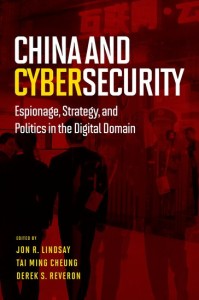China and Cybersecurity: Espionage, Strategy, and Politics in the Digital Domain, edited by Jon R. Lindsay, Tai Ming Cheung and Derek S Reveron [Book Review]
Hardly a month goes by without a new accusation of nefarious Chinese behavior on the Internet. United States officials have routinely called high-profile breaches of American digital networks, such as the hacking of the Office of Personnel Management, state-sanctioned espionage. This has fed a belief, held by both American and Chinese officials, that China’s “cyberwarfare doctrine” is a way to balance the United States’s superior conventional capabilities.
Jon R Lindsay, Tai Ming Cheung, and Derek S Reveron have compiled a volume of academic papers detailing, in their words “how China both generates and copes with Internet insecurity through close attention to its domestic institutions and processes.” This multifaceted book discusses doctrines, motives, purposes, and capabilities of Chinese activities in cyberspace, internal and external. The chapters authored by Chinese writers, including one current member of the People’s Liberation Army, are especially illuminating. Particularly striking are their attempts to create new terms to describe this new sphere of geopolitical activity, and their overall optimism over the possibility of international management of cyberspace.
This is an except from a review of China and Cybersecurity: Espionage, Strategy, and Politics in the Digital Domain, edited by Jon R. Lindsay, Tai Ming Cheung and Derek S Reveron, originally published in the Asian Review of Books on September 26th, 2015. The full review can be accessed here.
